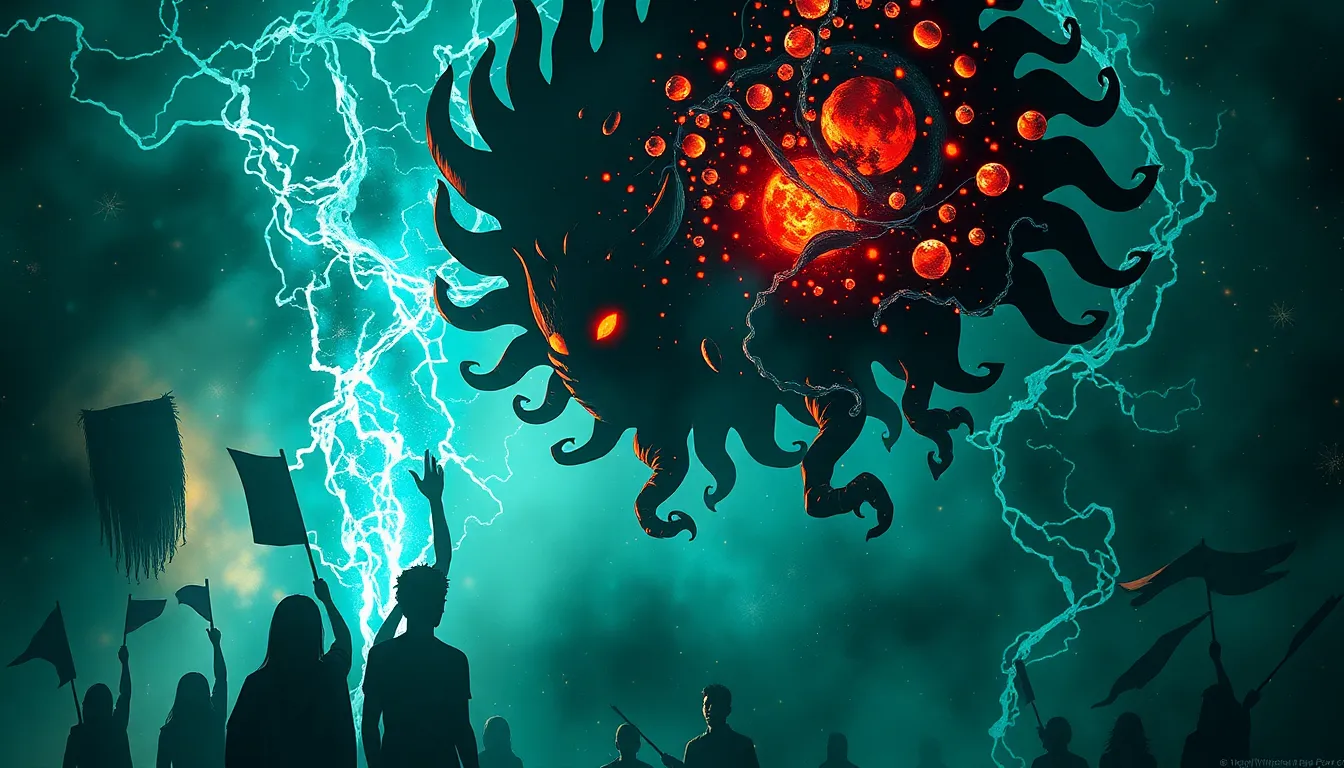Cultural Heroes: The Myths That Inspire Activism
I. Introduction
Cultural heroes are figures who embody the values, aspirations, and struggles of a community, often serving as symbols of hope and change. These heroes emerge from various backgrounds and contexts, yet they share a commonality in their ability to inspire and mobilize people toward action. Myths surrounding these figures play a crucial role in shaping social movements, providing narratives that resonate deeply with individuals and collectives alike.
This article explores the significance of cultural heroes in activism, examining historical contexts, the power of myths, contemporary figures, and the influence of media. By understanding these elements, we can appreciate how cultural heroes continue to inspire and drive social change.
II. Historical Context of Cultural Heroes
The concept of cultural heroes has its roots in ancient societies, where stories of valor, sacrifice, and moral integrity were passed down through generations. These figures often represented the ideals and values of their cultures, serving as models for behavior and social aspirations.
- Origin and Evolution: Cultural heroes have evolved from mythological figures in ancient lore to modern-day activists and leaders.
- Key Historical Figures: Examples include Joan of Arc, Mahatma Gandhi, and Harriet Tubman, each representing different struggles for freedom and justice.
- The Role of Storytelling: Storytelling has been essential in preserving the legacies of these heroes, allowing their narratives to inspire future generations.
III. The Power of Myths in Activism
Myths serve as powerful tools for inspiring and mobilizing communities. They create shared narratives that bind individuals together in pursuit of common goals.
- Inspiration and Mobilization: Myths can galvanize communities to take action, creating a sense of urgency and purpose.
- Psychological Impact: Cultural heroes can have profound psychological effects on activists, instilling courage, resilience, and a sense of identity.
- Connection to Identity: Myths often shape the identities of social movements, providing a narrative that helps individuals understand their role in a larger struggle.
IV. Case Studies of Cultural Heroes in Activism
Several cultural heroes have had a significant impact on activism throughout history, each with their unique narratives and contributions.
A. Martin Luther King Jr.: The Myth of the Peaceful Revolution
Martin Luther King Jr. is often celebrated as a symbol of nonviolent resistance in the American civil rights movement. His famous “I Have a Dream” speech encapsulates the aspirations of millions for equality and justice.
B. Malala Yousafzai: The Girl Who Stood for Education
Malala Yousafzai represents the fight for girls’ education globally. Surviving an assassination attempt, she emerged as a powerful voice advocating for the right to education for all children.
C. Nelson Mandela: Transformative Leadership and Resilience
Nelson Mandela’s struggle against apartheid and his subsequent presidency symbolize resilience and reconciliation. His life story inspires countless activists and leaders around the world.
V. Analyzing Contemporary Cultural Heroes
In recent years, new cultural heroes have emerged, reflecting the changing landscape of activism.
A. Greta Thunberg: Youth Activism and Environmentalism
Greta Thunberg has become a prominent figure in the fight against climate change, inspiring a global movement of youth activists demanding urgent action for the planet.
B. Black Lives Matter: Emergence of New Cultural Heroes
The Black Lives Matter movement has brought forth a diverse array of cultural heroes, representing the fight against systemic racism and injustice.
C. Intersectionality in Modern Activism
Contemporary cultural heroes often embody intersectional identities, highlighting the interconnected nature of various social justice issues.
VI. The Role of Media in Shaping Cultural Heroes
Media plays a crucial role in shaping the narratives and public perceptions surrounding cultural heroes.
- Representation in Literature and Film: Biographies, films, and literature can immortalize cultural heroes, making their stories accessible to wider audiences.
- Influence of Social Media: Platforms like Twitter and Instagram allow activists to share their messages and mobilize support more efficiently than ever before.
- Impact of Documentaries and Biopics: These forms of media help to humanize cultural heroes, providing deeper insights into their struggles and triumphs.
VII. Critiques of Cultural Heroes
While cultural heroes can inspire, there are also critiques regarding their idolization and the complexities of their narratives.
- The Danger of Idolization: Overly simplistic portrayals can lead to unrealistic expectations and diminish the contributions of others within movements.
- Complexity and Flaws: Cultural heroes are often multifaceted individuals with flaws, and their narratives must reflect this complexity.
- Oversimplification of Social Movements: Focusing solely on singular figures can obscure the collective efforts and systemic issues at play.
VIII. The Future of Cultural Heroes in Activism
As society evolves, so too does the concept of cultural heroes in activism.
- Emerging Figures and Movements: New leaders are rising in various social movements, emphasizing the need to recognize diverse voices.
- Grassroots Activism: Local efforts are crucial in creating new heroes who reflect the communities they serve.
- Shifts in Society’s View: The future may see a more nuanced understanding of heroism, recognizing collective contributions over individual accolades.
IX. Conclusion
Cultural heroes play a significant role in shaping activism and inspiring social change. Their myths resonate within communities, motivating individuals to take action for justice and equality. As our society continues to evolve, so will the narratives surrounding these heroes, highlighting the importance of inclusivity and varied perspectives in activism. It is essential to recognize and support diverse cultural heroes, ensuring that their legacies inspire future generations.
X. References and Further Reading
- Suggested Literature: “The Hero with a Thousand Faces” by Joseph Campbell
- Documentaries: “13th,” directed by Ava DuVernay
- Online Resources: Organizations like “Facing History” and “The Hero Project” promote activism through cultural narratives.


